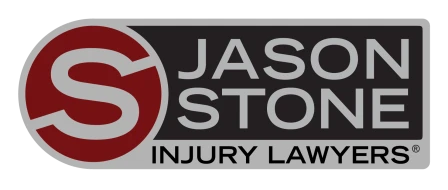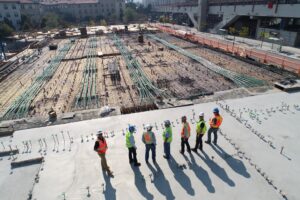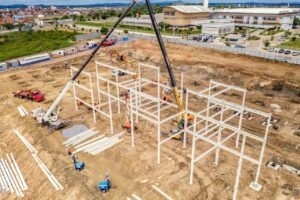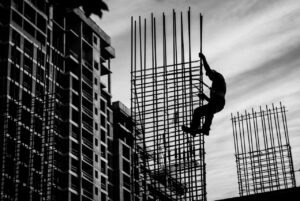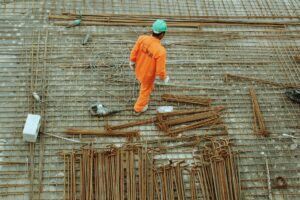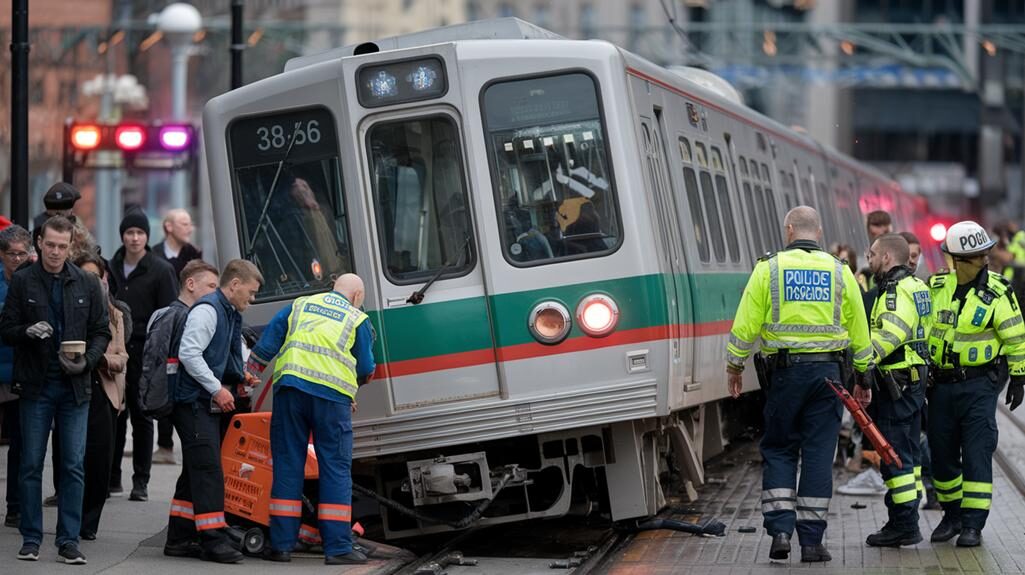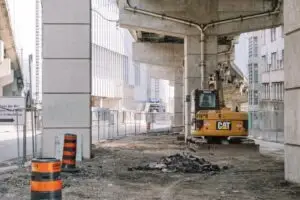 Determining liability in any accident can be challenging. It becomes even more so when an accident occurs in a construction or road work zone. For the 108,000 construction workers (including road work crews) who sustained injuries on the job that resulted in missed workdays or job transfers in 2021 — not to mention the motorists and other non-motorists who suffered injuries in a construction zone accident — obtaining compensation for their injuries may have been a stressful endeavor.
Determining liability in any accident can be challenging. It becomes even more so when an accident occurs in a construction or road work zone. For the 108,000 construction workers (including road work crews) who sustained injuries on the job that resulted in missed workdays or job transfers in 2021 — not to mention the motorists and other non-motorists who suffered injuries in a construction zone accident — obtaining compensation for their injuries may have been a stressful endeavor.
If you were in an accident in a construction zone, you don’t need to figure it all out on your own. Jason Stone Injury Lawyers is here to assist in any way we can. You don’t need to have catastrophic injuries to contact us; we believe everyone should understand their rights and options. Determining liability is something we do daily. We can also represent you as you pursue compensation through the insurance company, workers’ compensation or a legal claim.
What It Takes To Determine Liability
Liability in cases that involve accidents leading to injuries is usually framed in the concept of negligence. If you are the claimant, you need to establish that the other party was at fault for the accident, thus causing your injuries, except in workers’ compensation cases and auto insurance personal injury claims.
Liability in Workers’ Compensation
Workers’ compensation insurance is no-fault coverage in most states, including Massachusetts. If you are an employee, your owner must have W.C.I. protection. If you sustain a work-related injury in a construction or road work zone, you are due benefits, regardless of fault.
There are exceptions, such as when a worker tries to injure themselves or if a construction worker is under the influence of drugs or alcohol when the accident occurs. However, approximately half of workers’ comp claims in Massachusetts get rejected and must go through the dispute process.
Liability in Personal Injury Protection Claims
In states like Massachusetts, with no-fault auto insurance laws, residents must have personal injury protection. If you are a motorist who sustained injuries in a work zone car crash, your first chance to recover damages is through your P.I.P. insurance. The coverage pays medical expenses and wage losses up to a minimum policy limit of $8,000.
If you file a claim with your insurer, fault is not a consideration for paying out benefits. However, liability matters when your injuries or wage losses exceed the $2,000 threshold, allowing you to seek compensation through the at-fault driver’s insurance company or a personal injury lawsuit. P.I.P. insurance also does not cover non-economic damages such as pain and suffering. Therefore, if you wish to pursue compensation for these losses, you must be able to prove liability.
Liability in Personal Injury Claims
Unless you file a workers’ comp or P.I.P. claim, proving liability is necessary to obtain compensation. To establish liability, you need evidence of the following:
- Duty: You must show that the other party was responsible for not creating a hazardous situation for you. While this may seem a given, it isn’t always. For instance, if you are a pedestrian and cross over a barricade to enter a construction zone without explicit permission, you would have difficulty proving that anyone on the site owed you this duty.
- Breach: After you establish duty, you must demonstrate that the other party failed in its duty. If your personal injury claim is a premises liability case, proving breach of duty requires you to show that the other party knew or should have known a hazard existed but failed to fix it or warn others of its existence.
- Causation: Duty and breach of duty may indicate negligent behavior, but they do not automatically prove causation. It is up to you to show that the other party’s negligence caused the accident or incident.
- Injury: You need proof that you sustained injuries and that they were an outcome of the accident. You won’t meet this criterion without medical records establishing the presence of injuries and proof linking those injuries to the accident.
- Damages: Your injuries must result in sufficient economic harm to warrant a personal injury claim. In Massachusetts, the threshold is $2,000.
For a claim to be successful, proof of all elements of negligence must be present. A Jason Stone Personal Injury Lawyers construction site accident attorney can evaluate your case to determine if the facts support a negligence claim. If you have questions about whether your case has merit, you can count on us for an honest assessment. There is no risk to you, as our initial consultation is free. There’s No Obligation, Just Information®.
Potentially Liable Parties in Construction or Road Work Zone Claims
Which parties might be responsible for your injuries depends on your accident’s cause and your role. Construction and Road Work Zones are often sites with multiple parties crossing paths. Furthermore, the sites inherently contain hazards, with tools, machinery and equipment operating at any given time and infrastructure in various stages of construction or repair. An attorney can help you identify which of the following parties could bear fault in your situation.
Contractor or Subcontractor
Contractors and subcontractors ultimately bear responsibility for their employee’s actions. If you work for one or the other, you can’t hold that individual accountable. However, if you work for the general contractor, and a subcontractor or one of their employees causes the accident, you can hold them responsible. The same is true if you are a subcontractor and you or one of your employees sustains an injury due to the general contractor’s negligence.
Contractors and subcontractors may also be liable when pedestrians, cyclists and motorists have an accident due to workers’ negligence. An example would be falling debris from a construction site hitting a pedestrian or vehicle.
Motorist or Truck Driver
If a motorist strikes a construction worker on a road crew or at a building worksite, the motorist is potentially at fault in the accident. When two cars crash in a work zone, one or both motorists may bear responsibility for the accident.
When a truck is involved, the driver may be liable, but so, too, might the motor carrier. Truck accidents occurring in road work zones are usually third-party cases unless a work truck strikes a worker or another work vehicle, and both work for the same company.
Property Owners
Property owners can be liable if they do not maintain a safe environment for the construction workers they hire to work on their property and for passersby. Proving property owner liability requires distinguishing the property owner’s responsibility from the construction company’s responsibility to maintain safe conditions.
Engineers
Structural failures may be design or engineering flaws. In these instances, the engineers would bear responsibility for an accident.
Manufacturers
Manufacturers may be liable if equipment, tool or machinery is defective or faulty. The manufacturers could make construction equipment, but they could also be those responsible for vehicle parts on trucks or passenger vehicles.
Who To Contact for Help Determining Liability
If you had an accident in a construction or road work zone, you don’t have to try to determine who to hold accountable on your own. Jason Stone Injury Lawyers is happy to help. We can review your case and evaluate the facts to determine who might be liable for your damages. If you decide to hire us, we’ll help you get the compensation you deserve. Our Stone Cold Guarantee means you won’t pay until we settle your case. Contact us today for a free consultation. Remember: There’s No Obligation, Just Information®.
Not Trusting What You’re Being Told?
Better Phone Stone
800-577-5188
 START MY NO OBLIGATION CONSULTATION
START MY NO OBLIGATION CONSULTATION